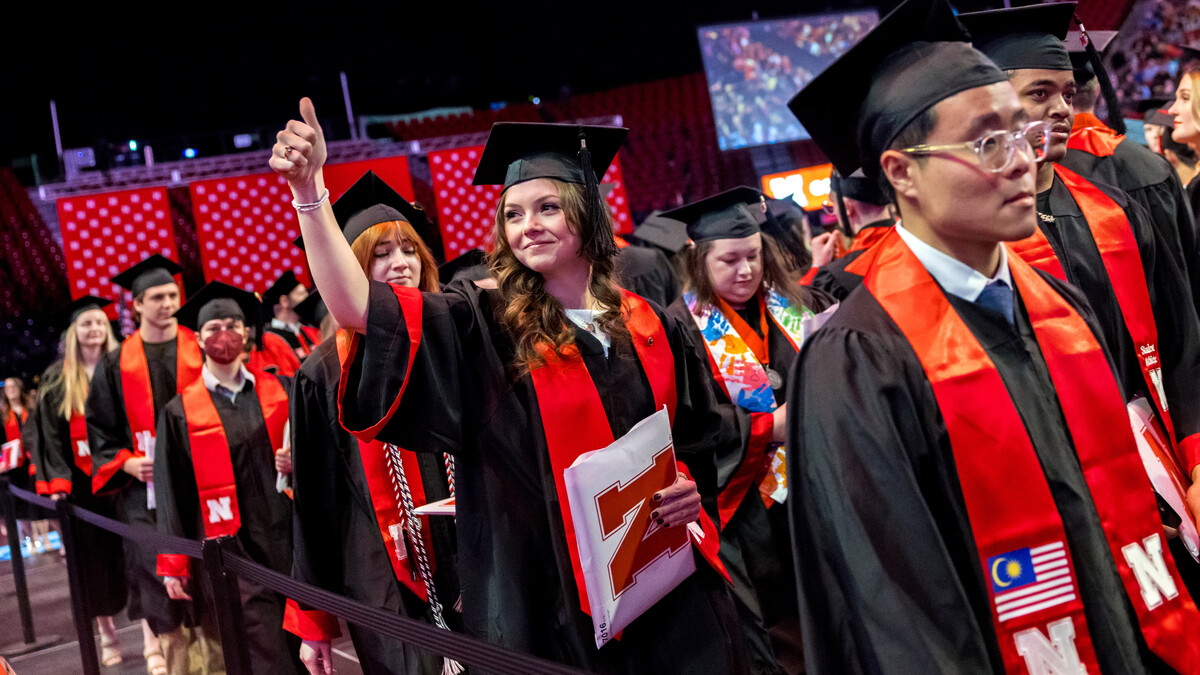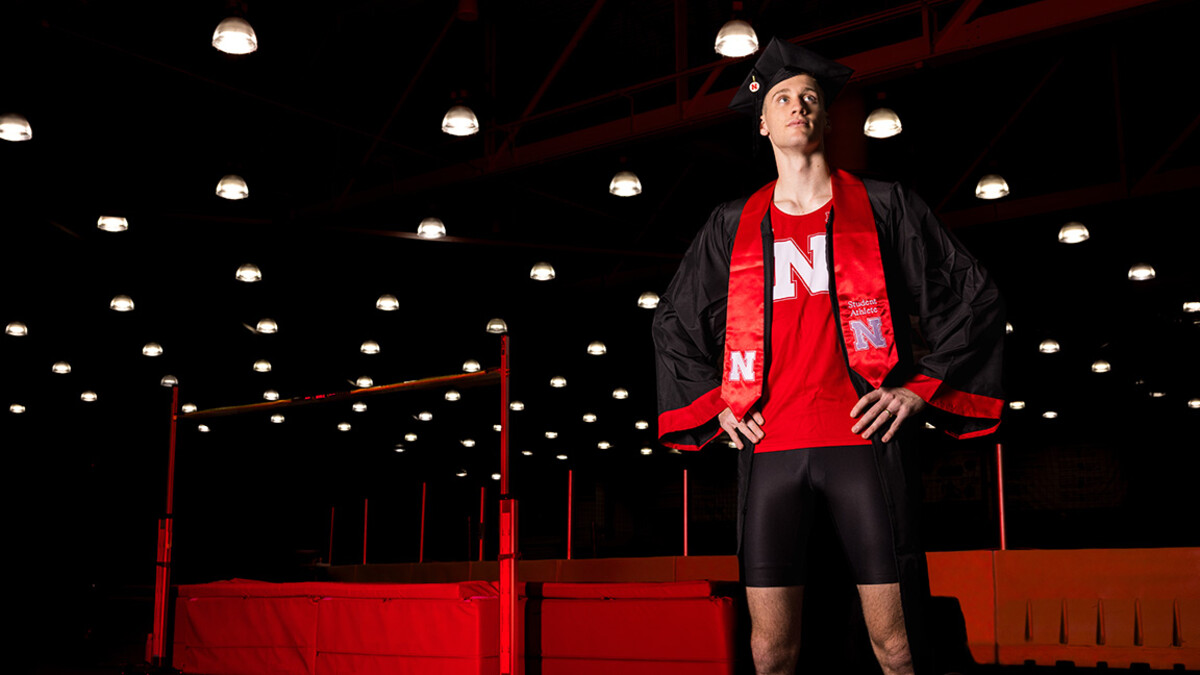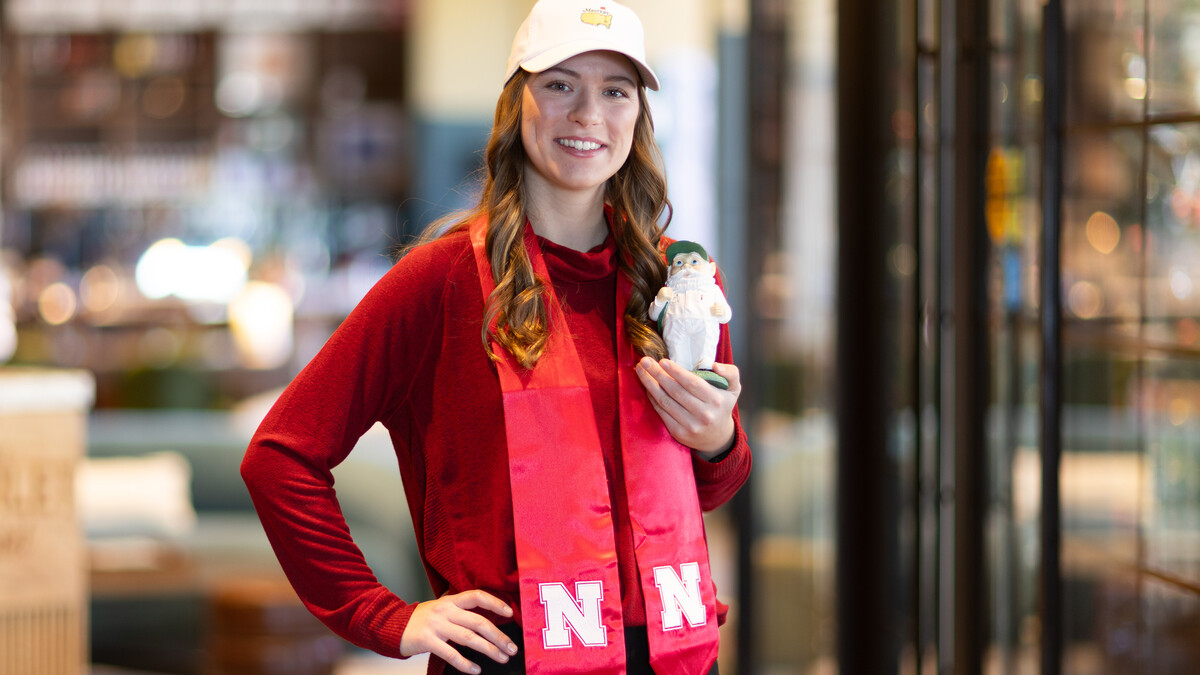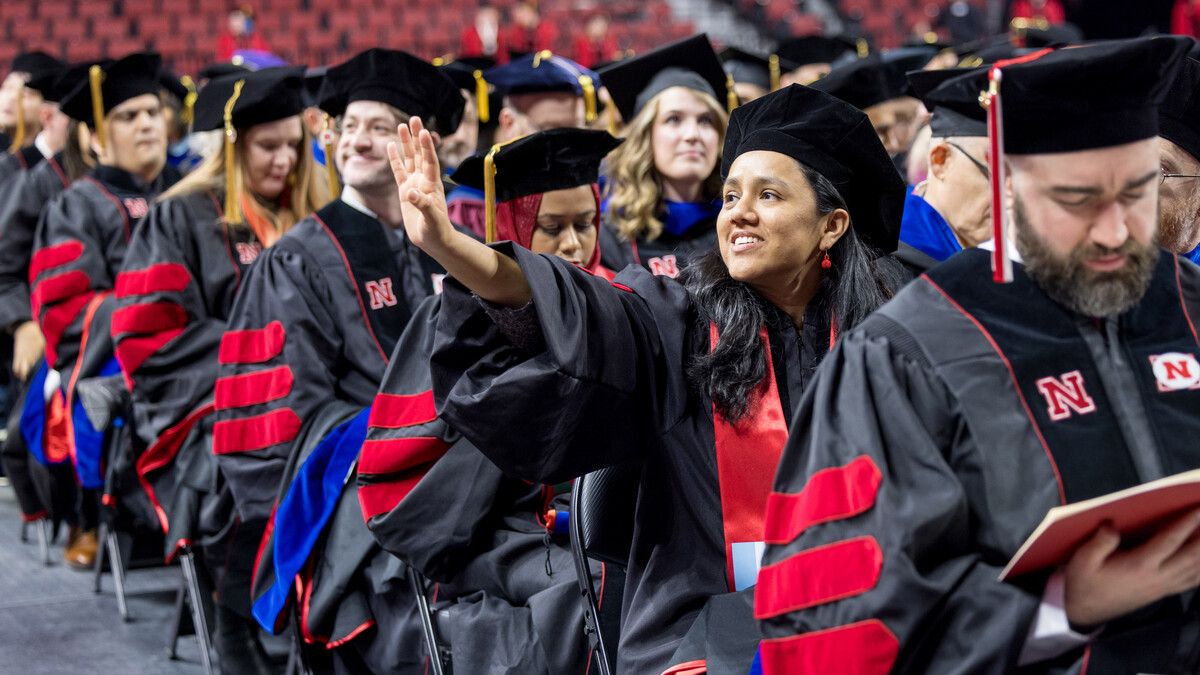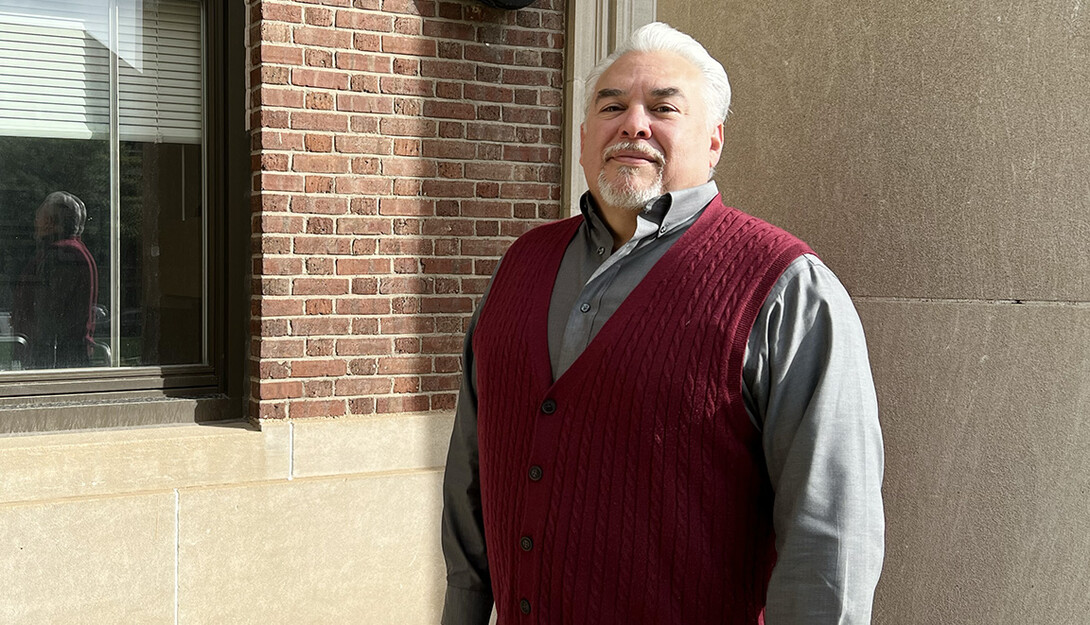
Like a lot of people, Pablo Rangel describes his career path as nonlinear.
And though he’ll be honored for five years of service at the University of Nebraska–Lincoln’s Celebration of Service Oct. 27, he was a Husker long before 2018, the year he joined Nebraska Athletics as a learning specialist. In 2021, he moved to Services for Students with Disabilities as a disability specialist.
His personal history makes his current work even more meaningful to him.
“I was a college dropout,” Rangel said. “I came to Nebraska in 1990, and I didn’t make it past my third semester. I worked in food service and construction for about 20 years.”
In 2008, he was forced to abruptly change course.
“Think about the economics then,” he said. “They called it a recession, but it was a disaster for me. Overnight, construction stopped. Not just new homes, which I was involved in, but also remodeling. Everything completely dried up in construction, where my skills and investments laid.”
In the back of his mind, Rangel knew he had 17 credits completed at the University of Nebraska–Lincoln.
“That’s what I had to build on,” he said. “Those credits still had value, so I came back to Nebraska.”
He re-enrolled in 2008 and earned his bachelor’s and master’s degrees in history. Then, he enrolled at the University of Chicago, where he earned a master’s in social science, and started a doctorate in history.
He also found his new calling.
“I was working at a nonprofit in Chicago that was related to college and career readiness,” he said. “It served students on the south, southwest and west sides of Chicago — underserved communities, predominantly Black and Latino.
“I was teaching college courses, too, and I realized that I didn’t want to be a history professor, because standing in front of a classroom wasn’t what I enjoyed — it was the one-on-one experiences I had with students who would come to office hours to talk about things. Those experiences pushed me toward individualized educational support.”
Looking back, Rangel said his career pivots weren’t really a surprise. He’d always valued education.
“I was always interested in education,” he said. “I grew up with learning disabilities, but I never missed school. I had some great teachers who showed me learning could be fun, that I could be good at it, and I never lost sight of that. I wanted to help people do that, too.”
When the opportunity opened at Nebraska Athletics to work in student support, he jumped at it.
“I wanted to come back to the University of Nebraska because I value it and I want to contribute to it, and while I had a fantastic experience in Athletics, I moved over here because I’m able to reach more students more broadly and collaborate with other learning environments,” Rangel said.
About 1,500 students are currently registered with SSD, and Rangel and his colleagues work on an individual basis with many of them. They develop accommodations plans specific to disabilities, helping to ensure each student’s equitable access.
“We serve a large community of students, and work with their faculty,” Rangel said. “We’ve expanded our outreach, and I think that’s been important. We want campus to recognize what we do, for us to be more visible, and we want to reduce the stigma.”
And sometimes, Rangel’s work involves assuring students that everything will be OK.
“If I had to pick the most stressful part of my job, it’s helping students manage crises,” he said. “A crisis can happen at any time along the way, and helping students mitigate those things is a significant part of my job, too.”
His favorite part is overseeing a program for first-year students who are on the autism spectrum. Rangel meets with these students several times throughout their first semester, helping them make the transition to college.
“It’s very satisfying to see their success,” he said.
Rangel sees himself in many of the students he serves. Teachers and mentors made positive impacts on him along his educational journey, and he finds much fulfillment in doing the same.
“Helping students find solutions to the issues they encounter is honorable work,” he said. “If I had a Pablo when I first started college, things could have been different. I honestly believe that. My interactions with students are significant. And I like that we say, ‘every interaction matters,’ because it’s true. I had good teachers and not-so-good teachers, and I remember both.”
Rangel is still pursuing a doctorate in history and hopes to complete it in 2025. Though he’ll have another degree that will open new doors for him, he said he’ll likely stay at Nebraska.
“I’ve thought a lot about what comes next,” he said. “I really didn’t think I’d be back in Nebraska when I was living in Chicago. I was headed the other way — to the East Coast — but I value this place, and I think my future is here.”



